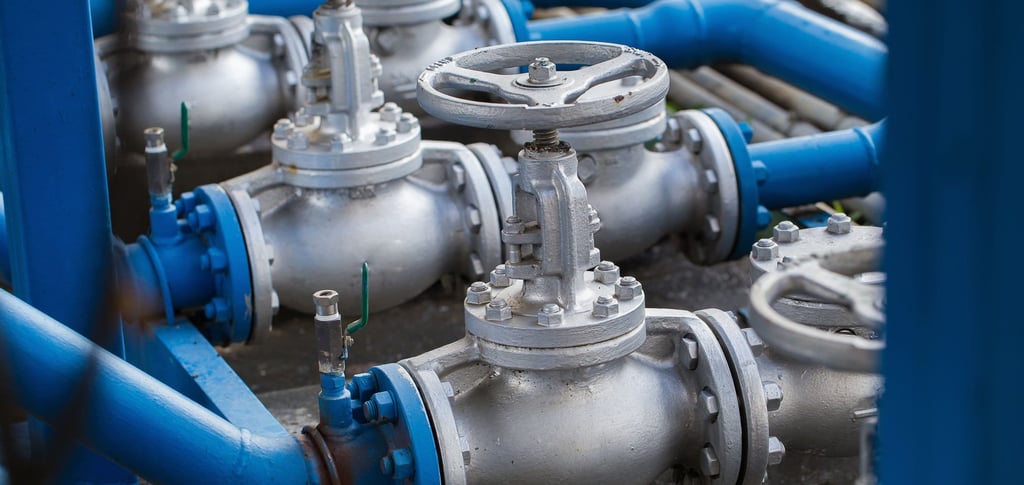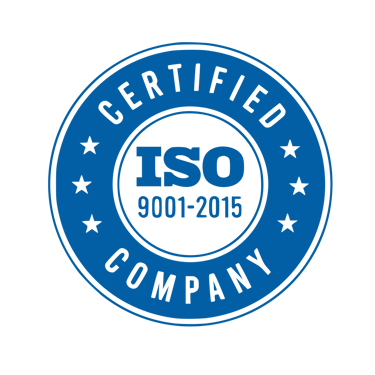How To Start A Lucrative Pipes and Valves Distribution Business In Rwanda
The Complete Guide To Building A Profitable Water Infrastructure Supply Business In East Africa
HOW TO GUIDE
4 min read


Rwanda, known for its stable governance and rapid development strides, is increasingly investing in infrastructure, agriculture, and urbanization. As the country continues its journey towards achieving its Vision 2050, there is a growing demand for essential construction and water management materials, particularly pipes and valves.
From irrigation projects in the Eastern Province to urban water supply initiatives in Kigali and secondary cities, pipes and valves are at the core of Rwanda’s infrastructural transformation.
This guide explores how to tap into this rising demand by building a sustainable, scalable, and lucrative pipes and valves distribution business in Rwanda.
What Are Pipes and Valves?
Pipes are cylindrical conduits used to transport fluids (liquids and gases) from one point to another. Valves are mechanical devices used to control the flow and pressure of these fluids.
Common Types Used in Rwanda:
PVC (Polyvinyl Chloride) Pipes – Ideal for irrigation and drainage.
HDPE (High-Density Polyethylene) Pipes – Used for water distribution and sewer lines.
GI (Galvanized Iron) Pipes – Preferred for borewell systems and building construction.
Ball Valves, Gate Valves, Check Valves – Used for flow control in plumbing, irrigation, and industrial systems.
These components are essential in sectors such as agriculture, real estate, municipal water supply, and industrial processing.
The Market Opportunity in Rwanda
Why the Demand is Growing:
Irrigation & Agriculture: Government and donor-funded irrigation schemes are expanding.
Urbanization: The demand for water and sewage infrastructure in urban centers is rising.
Industrial Development: Special economic zones and factories need reliable water systems.
Construction Boom: New buildings, hotels, and residential complexes require extensive plumbing.
Gaps in the Market:
Most pipes and valves are imported.
Local manufacturers are limited, especially outside of Kigali.
Distribution channels are fragmented and underdeveloped.
This creates a perfect opportunity for distributors to fill supply chain gaps, offer product variety, and ensure timely delivery.
Why Start a Pipes and Valves Distribution Business in Rwanda?
🌐 Growing Market Size
🚜 High Dependency on Imports
💰 Strong Margins
💼 Low Competition in Organized Distribution
✉️ Business-Friendly Policies
With the right sourcing strategy and customer network, a distributor can create a steady income stream and long-term contracts with contractors, NGOs, and government bodies.
Business Opportunities in This Sector
Supplying to Government and NGO Projects
B2B Sales to Hardware Shops and Contractors
Bulk Sales to Agricultural Cooperatives
Offering Private Label Products with Imported Goods
Becoming an Exclusive Distributor for a Foreign Manufacturer
Challenges and Risks
⚠️ Import Delays due to port and customs issues
⚠️ Fluctuating Forex Rates impacting costs
⚠️ Low Technical Awareness among end-users
⚠️ Difficulty in Building Trust with Large Buyers
These risks can be mitigated by building strong supplier relationships, having buffer inventory, and offering customer education.
Step-by-Step Guide to Starting the Business
1. Conduct Market Research
Understand local demand by visiting hardware markets.
Talk to engineers, plumbers, and rural water project teams.
Identify best-selling pipe sizes and valve types.
2. Register Your Business
Register with Rwanda Development Board (RDB).
Obtain a TIN (Tax Identification Number).
Open a business bank account.
3. Find Trusted Suppliers
Target manufacturers from India, China, or Turkey.
Look for ISO certification, corrosion testing, and quality assurances.
Request samples and vet based on local compatibility.
4. Setup Storage and Distribution
Rent or build a warehouse in Kigali or a regional hub like Huye or Musanze.
Maintain inventory of fast-moving products (e.g., 32mm HDPE pipes).
Use basic inventory management software.
5. Build a Sales & Distribution Network
Recruit field reps to cover hardware shops and construction sites.
Partner with plumbers and installers for word-of-mouth sales.
Provide discounts for NGOs, cooperatives, and government tenders.
6. Logistics & Importation
Use Dar es Salaam Port via Rusumo border, or Mombasa via Gatuna.
Partner with an experienced clearing agent in Kigali.
Understand EAC CET (Common External Tariff) classifications for pipes and valves.
7. Marketing Strategy
Print catalogues and install shop signage.
Run radio ads in local languages targeting rural areas.
Use WhatsApp Business to send product updates and handle orders.
8. Offer Value-Added Services
Provide basic installation guides.
Offer free delivery for large orders.
Bundle with related products (fittings, tapes, water meters).
Startup Capital & Profitability
Estimated Startup Capital:
Business registration and legal: $300
Initial stock (imported): $15,000–$25,000
Warehouse rent and setup: $3,000
Staff salaries (2–3 people): $1,000/month
Marketing and branding: $500
Total initial investment: $20,000 – $30,000 (small to mid-size operation)
Profit Margins:
Pipes and valves generally yield 15%–30% markup.
Bigger margins possible if you're an exclusive importer.
Tips for Success
Source diverse sizes and types of pipes for different use cases.
Focus on after-sales support — it builds long-term trust.
Keep a good balance of urban and rural buyers.
Partner with a sourcing agent in India to reduce procurement headaches.
Stay updated with government projects and tender opportunities.
Frequently Asked Questions (FAQs)
Q1: Can I start without importing myself?
Yes. You can start by reselling from importers based in Kigali or Nairobi. This reduces risk but lowers margins.
Q2: How long does it take to clear goods from the port?
Typically 2–3 weeks if documents are in order and your agent is efficient.
Q3: What are the most demanded pipe sizes?
32mm, 50mm, and 100mm PVC/HDPE pipes are common for both farming and construction use.
Q4: Is there competition from local manufacturers?
Minimal. Most stock is imported, making distribution the biggest opportunity.
Q5: Are there financing options?
Yes. You can get supplier credit from India or use Rwanda Development Bank programs.
Conclusion
As Rwanda continues its development journey, basic infrastructure materials like pipes and valves will remain in high demand. Whether it's for irrigation, housing, or water management, the need for quality and affordable distribution partners is growing.
By entering the market with the right partners, inventory mix, and sales strategy, you can build a profitable and long-lasting pipes and valves distribution business that serves Rwanda’s future.

